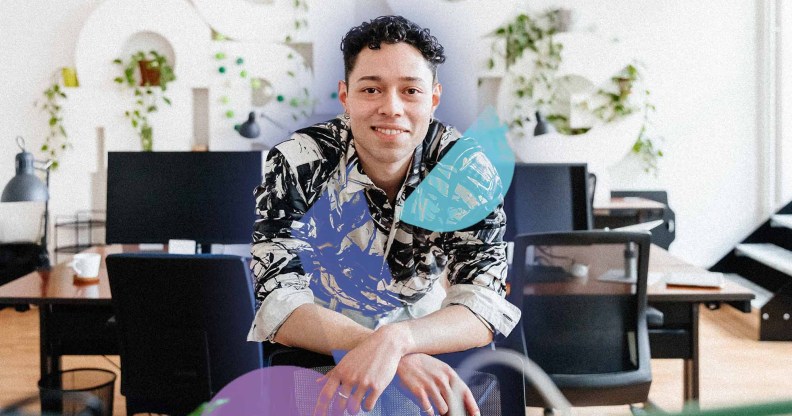New research reveals what LGBTQ+ Gen Z graduates want from work

New research suggests that three-quarters of LGBTQ+ graduates are reluctant to take a job where they would need to hide their sexual and gender identity. (Getty Images/PinkNews)
New research has revealed that more than a third of students and graduates identify as LGBTQ+, but many are reluctant to work somewhere where they can’t be their authentic selves.
The research, conducted by the LGBTQ+ jobs platform myGwork, revealed that today’s young queer job-seekers want to work in open and accepting environments.
The survey of more than 2,000 students and recent graduates globally showed that Gen Z is quickly becoming the queerest generation of workplace cohorts. The research showed that 36 per cent of those surveyed are LGBTQ+, with nine per cent identifying as bisexual, nine per cent as gay, five per cent as queer and three per cent as lesbian.
Those who identified as asexual, pansexual, queer and genderqueer collectively represent 13 per cent of LGBTQ+ students and graduates, which would seem to reflect a growing recognition and acceptance of diverse sexual identities.
The survey also showed that 75 per cent of respondents expressed a reluctance to join organisations where they couldn’t be their authentic selves, fearing being discriminated against, facing bias and being given limited opportunities for the training or development required to progress.
LGBTQ+ graduates want to see themselves in senior roles
The research highlighted the importance of seeing visible LGBTQ+ role models in senior roles. At companies without visible LGBTQ+ leadership, many young LGBTQ+ professionals are unlikely to believe they can get ahead. This lack of visibility led to an average of eight out of every 10 of those who responded saying that their sexual and gender identity will make it more challenging for them to reach senior positions.
Additionally, an overwhelming 80 per cent of LGBTQ+ students and graduates said that seeing visible LGBTQ+ role models in senior positions would influence their decision to accept a job offer made by a prospective employer.
LGBTQ+ students and graduates of colour attach slightly higher importance to having visible LGBTQ+ role models and allies in leadership roles compared with their white peers, according to the data collected.
The report revealed that discrimination based on sexual orientation or gender identity remains common in the workplace and universities/business schools.
Thirty-six per cent of LGBTQ+ students/graduates have personally experienced discrimination such as homophobia, biphobia and transphobia at their place of work or study. Almost half of all LGBTQ+ students/graduates surveyed reported witnessing discrimination based on sexual orientation or gender identity at their place of study or work, compared with 32 per cent of non-LGBTQ+ students and graduates.
Meanwhile, 52 per cent of LGBTQ+ students and graduates from marginalised ethnicity and racial groups said they witnessed more discrimination based on both their sexual orientation and gender identity. LGBTQ+ students and graduates of colour were more likely to have experienced discrimination themselves, at 40 per cent compared with 30 per cent of white LGBTQ+ students/graduates.
LGBTQ+ students and graduates value allyship
The research also highlights the importance of active corporate allyship, with 80 per cent of LGBTQ+ students and graduates indicating a reluctance to join companies that have reduced support for the LGBTQ+ community.
Currently, very few students and graduates globally believe that organisations are taking enough proactive actions toward total inclusivity. The figures are much lower for LGBTQ+ students, at five per cent compared with 14 per cent of cis-het students and graduates.
Commenting on the research, myGwork’s co-founders, Adrien and Pierre Gaubert, said: “Our latest research goes beyond highlighting industries perceived to be more LGBTQ+ friendly by young job-seekers. It provides insights into the criteria LGBTQ+ students and recent graduates seek in inclusive employers and the essential benefits necessary to attract and retain them.”

